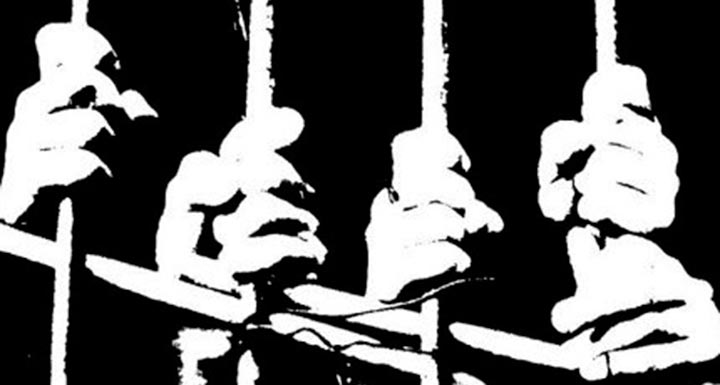
Drive to restore voting rights for ex-felons coming to Florida?
A coalition of groups in Florida are preparing to try to get a constitutional amendment on the 2016 ballot in Florida that would restore the voting rights of most individuals with past felony convictions upon completion of their sentence. These groups include the ACLU of Florida, the League of Women Voters, Faith in Florida and the Florida Rights Restoration Coalition. The proposed constitutional amendment would not apply to those convicted of murder or a felony sexual offense.
The state’s current policy regarding ex-felons was an issue that Charlie Crist occasionally discussed during the recent gubernatorial campaign. When he took office after being elected in 2007, the then Republican governor was able to persuade a majority of the Florida Cabinet to change the policy to provide ex-offenders convicted of less serious offenses the right to regain their rights without a hearing, while those convicted of crimes such as murder required a more thorough investigation and a hearing. But that was repealed in 2011, when newly elected Attorney General Pam Bondi said that the process was too easy for released felons. Shortly after she made those comments, she and the rest of the Cabinet scrapped the process and set a minimum of a five-year waiting period.
“Individuals have to wait anywhere between 5-7 years, depending on the nature of the crime they commit, to apply to get their rights restored. And that’s after they’ve paid their fines and restitutions, and they have to wait an additional 2-5 years, so you’re talking 7-12 years before they’re able to get their rights restored,” says Joyce Hamilton Henry, director of advocacy for the ACLU of Florida. “We are tired of that, because every four years we have to wait for these four individuals (in the Florida Cabinet) to make a decision” regarding the fate of ex-felons. She made those comments while addressing the Hillsborough County Executive Democratic Committee on Monday night.
On Tuesday, SaintPetersBlog reached out to Deirdre Macnab, president of the Florida League of Women Voters, for comment. Macnab would not confirm that the League has committed to putting the measure on the ballot, but did say that the LWV for the last few years has been “deeply concerned and active on this issue,” adding that research shows significantly lower recidivism rates for people whose rights have been restored. She said a statement on the issue from the League “will be forthcoming.”
Hamilton Henry didn’t provide any details regarding where the financial resources to fund a drive to get over 688,000 signatures on a petition would derive from. But another member of the coalition, Desmond Meade with the Florida Fair Rights Coalition, says that the movement will look at trying to collect signatures from the thousands of congregations of various faiths throughout the state. “At the core of those faiths is the concept of forgiveness, redemption and restoration,” he said on Tuesday. “We typically use the Christian story of when Christ was on the cross. And when the criminal asked to be saved, Christ didn’t tell him he had to wait 5-7 years.”
Although the issue has been divided along partisan lines in Tallahassee over the past decade, Meade says it shouldn’t be that way, and points toward Virginia, where then GOP Gov. Bob McDonnell and Attorney General Ken Cuccinelli moved last year to begin automatically restoring rights for nonviolent felons on an individual basis. “I strongly believe in second chances and redemption. It is a fundamental part of the American way,” McDonnell said in a statement published in the Richmond Times-Dispatch back in 2013.
As reported by PolitiFact, the origin of disenfranchisement for ex-offenders in Florida goes back to 1845, when Florida’s General Assembly enacted a law that stated: “no person who shall hereafter be convicted of bribery, perjury, or other infamous crime, shall be entitled to the right of suffrage.” The first movement to serious address the issue came in the 1970s under Gov. Reubin Askew, who pressed the Florida Legislature to make it easier to restore civil rights. But in the 1990s, another Democratic governor, Lawton Chiles, then tightened the rules, making it harder for ex-felons to regain their rights.
According to the Sentencing Project, a criminal justice nonprofit think tank, Florida is home to the highest rate of felon disenfranchisement in the nation, with more than 10 percent of voting-age Floridians not able to vote.
You can read the language of the proposed amendment here.
(From the: Saint Pters Blog)

